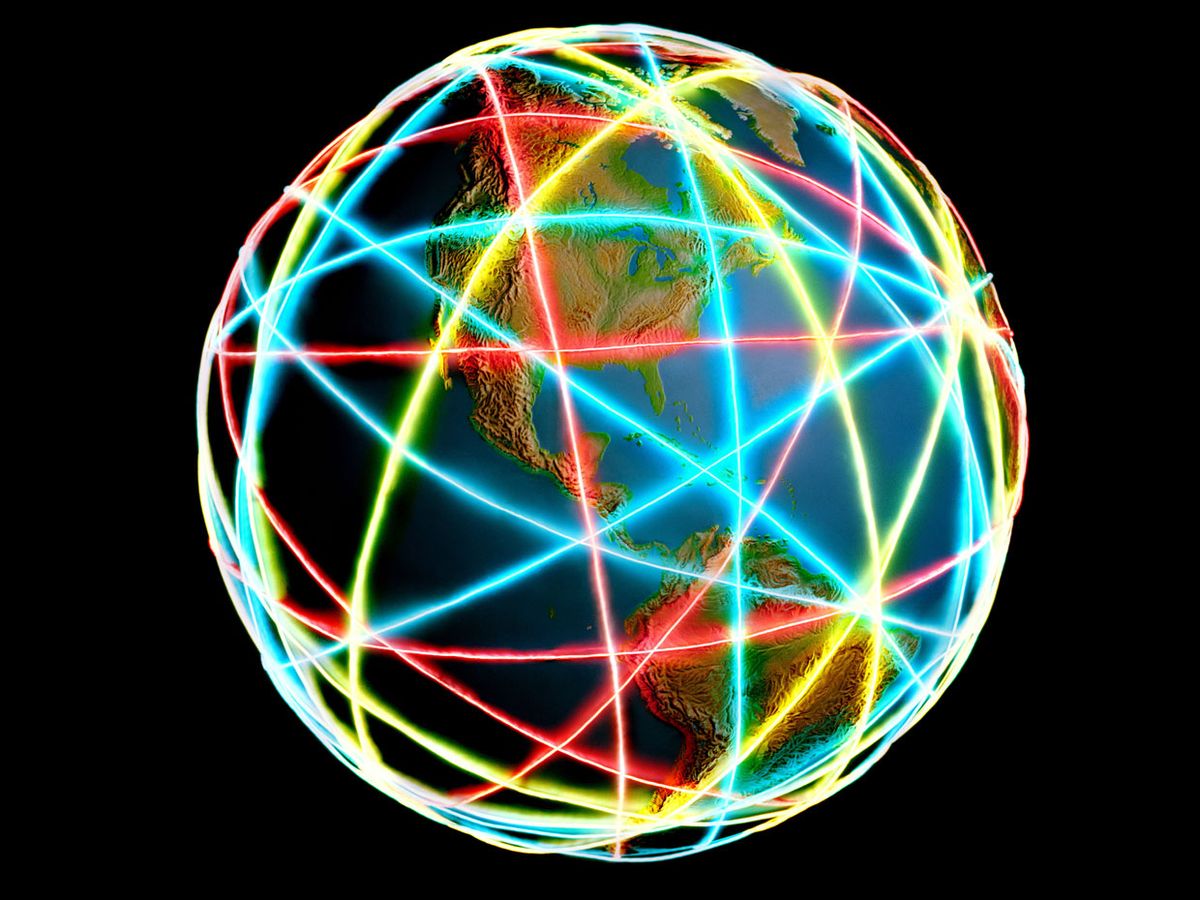26 December 2012—The International Telecommunication Union’s global treaty conference on telecommunications in Dubai earlier this month may have inadvertently given the term “digital divide” a new definition.
The term, generally used to describe the haves and have-nots in the information society, also aptly defines the growing rift that the Dubai talks revealed between two groups of nations with fundamentally opposing views on how the Internet should be governed. And that fissure, many now warn, could lead to a digital version of the Cold War.
“Dubai showed that we have a clear split in the global community on governing the Internet, which has become such a powerful economic force,” says Wolfgang Kleinwächter, a professor for international communication policy and regulation at the University of Aarhus, in Denmark, and a member of the German delegation in the negotiations. “A global confrontation is brewing.” The World Conference on International Telecommunications was not even supposed to include discussion of the Internet on the agenda, yet it marked what many experts see as a turning point in global telecoms. It pitted governments like those of the United States and Canada, which champion the multistakeholder model—in which the Internet is managed, developed, and regulated by its users—against nations such as China and Russia, which seek to curb Internet freedom through government control. And at this meeting, unlike at some of the other big telecom conferences, including the two World Summits on the Information Society, the two groups made no effort to hide their differences.
The United States got pretty much what it wanted—which was largely to leave things as they are. For instance, the proposal for a “sender pay model,” where a bit’s sender pays for its delivery instead of the receiver paying for access, was shelved. It would have forced big U.S. content providers like Google and Facebook to pay tolls to reach local users. Another proposal, which aimed to have treaty signers share control of the Internet address system, a function now handled by California-based ICANN, was also canned. And a cybersecurity proposal was removed at U.S. insistence, replaced by a general agreement on telecoms’ network security.
Yet these and some other concessions, which included tucking away the word “Internet” in a nonbinding resolution, weren’t enough to win over the United States and its allies, including the European Union and Canada. They decided to not sign the treaty, acting mainly out of fear that any reference to the Internet whatsoever would encourage governments to censor it and meddle with its infrastructure.
Terry Kramer, head of the U.S. delegation, told reporters that it was with a “heavy heart” that he was unable “to sign the document in its current form.”
Still, 89 of 144 eligible countries signed the treaty and, in so doing, agreed to put new regulations into effect by 2015 in areas such as mobile roaming, unsolicited mail, services for disabled people, and a global emergency number. Some observers were unimpressed with the outcome, however.
“Frankly, I thought it was a missed opportunity,” says Adam Peake, an executive research fellow at the Center for Global Communications, in Tokyo. “There were no particularly important decisions reached in this treaty, compared with the earlier one that ushered in competition in long-distance telephone services, among other things.”
So what does this all mean for the future of the Internet? Nothing in the short term, experts say, but watch out in the long term, they warn.
The United States, which practically invented the Internet and still manages much of its critical infrastructure, could lose its grip as other nations align to wrestle more control. No other country benefits as much from the status quo on the Internet than the United States, according to Hans Klein, associate professor in the School of Public Policy at Georgia Tech. But it will become increasingly difficult, he believes, to maintain that status. “For one, the U.S. model doesn’t always work well for developing countries,” he says. “We’re already seeing some critical infrastructure moving to other areas, like the new exchange point in Africa.”
Kleinwächter doesn’t rule out a “fragmentation” of the Internet if nations such as China, Brazil, India, and Russia don’t have more say in its global oversight. “It’s not that all these governments are opposed to the multistakeholder model; they just have an issue with U.S. dominance,” he says.
There’s no Cold War yet, but the signs of a growing digital divide are clear to see.
About the Author
John Blau covers technology for IEEE Spectrum from Düsseldorf, Germany. Earlier this month, he reported on expectations from the Dubai meeting.
